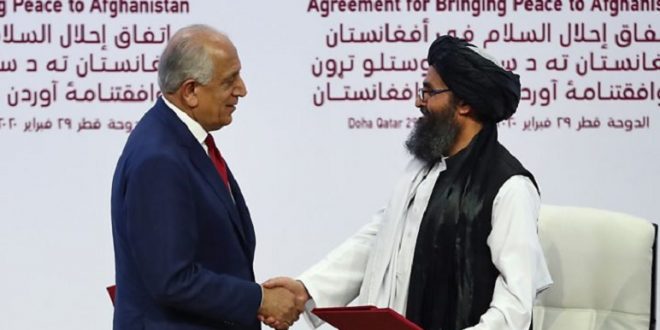Subsequent developments after the US-Taliban landmark peace deal was signed in Qatar following marathon negotiations aimed at ending the United States’ longest war signal that there would be serious violations of the deal, which is seemingly doomed to failure, right from the outset by both sides. In an expected twist, Afghan President Ashraf Ghani ruled out freeing 5,000 Taliban prisoners a day after the inking ceremony. Under the recently inked agreement, the Afghan government is supposed to release 5,000 Taliban prisoners by March 10th – when the intra-Afghan dialogue phase of the peace process would initiate – in exchange for 1,000 government detainees and the rest of other prisoners would be released in three months afterwards. This objection and reversal – which predominantly stems from the lack of coordination between the US and the Afghan government – throws a spanner in the works. Not taking the Afghan government on board and allotting such a small amount of time (10 days) in regards to this precondition of freeing 5,000 Taliban prisoners divert all the blame towards the US. This improbable clause of the deal promised by the US to the Taliban can be interpreted as the country’s effort to extricate itself no matter what while overlooking that throwing this curveball entails leaving Afghans with insurmountable differences to iron out. Moreover, there is no guarantee or assurance that the prisoners freed would not swell the Taliban ranks or take weapons again – something that would boost the rebels’ morale and negatively affect that of our security forces. The signed agreement only mentions that “[…] they will not pose a threat to the security of the United States and its allies.” There is no direct mentioning of the Afghan government which means the potentially released prisoners could pose threat to Afghans but not the US. Although the US-Taliban pact is a watershed in the peace process, its implementation is a far challenging task to be tackled by both sides. Backtracking on the infeasible release of prisoners would be the maiden, among many to come, violation of the deal. Now that the US has been dealt with, the Afghan government and the Taliban would have their own respective preconditions which would result in hampering the smooth development towards the launch of intra-Afghan talks. Doing this is essentially front-loading the process with prerequisites, something that is not viable and makes it difficult for the Afghan government and the Taliban to engage in the Afghan-to-Afghan negotiations.

 Afghanistan Times
Afghanistan Times



